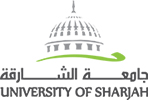



The United Arab Emirates often abbreviated as UAE or shortened to The Emirates is a federation situated in the southeast of the Arabian Peninsula in Southwest Asia on the Persian Gulf, bordering Oman and Saudi Arabia.
The capital is Abu Dhabi, which is also the country's center of political, industrial and cultural activities. Sheikh Zayed bin Sultan Al Nahyan was the UAE's president from the nation's founding until his death on November 2, 2004, followed by the election of his son, Sheikh Khalifa bin Zayed Al Nahyan, as the new UAE's president.
The UAE is a federation of seven emirates; Abu Dhabi, Ajman, Fujairah, Sharjah, Dubai, Ras al-Khaimah and Umm al-Qaiwain. The President of the United Arab Emirates is its head of state, and the Prime Minister of the United Arab Emirates is its head of government.
Its oil reserves are ranked as the world's sixth-largest and the UAE possesses one of the most-developed economies in West Asia. The climate of the UAE is generally hot and dry. The hottest months are July and August, when average maximum temperatures reach above 48 oC (118.4 oF) on the coastal plain.
The United Arab Emirates has a diverse and multicultural society and is relatively liberal. While Islam is the main religion, the UAE has been known for its tolerant practices. Christian churches can be found alongside mosques and this courtesy has seemingly been extended to Hinduism and Sikhism as there is a place tucked away inside a residential style building which houses a Hindu temple and a Sikh gurudwara. There are a variety of Asian-influenced schools, cultural centers and restaurants. Increasing numbers of European centers, schools, and restaurants can also be seen in the UAE.
The traditional food of the Emirates has always been rice, fish, and meat. Seafood has been the mainstay of the Emirati diet for centuries. Popular beverages are coffee and tea, which can be supplemented with cardamom, saffron, or mint to give them a distinct flavor. Muslims are prohibited from eating pork, so it is not included in local menus. If pork is available, it is clearly labeled as such.
Many emirates have established museums of regional repute, most famously Sharjah with its Heritage District containing 17 museums, which in 1998 was the Cultural Capital of the Arab World.
Abu Dhabi has embarked on the path to become an art center of international caliber, by creating a culture district on Saadiyat Island. There, six grand projects are planned: the Sheikh Zayed National Museum by Foster + Partners, the modern art museum Guggenheim Abu Dhabi to be built by Frank Gehry, the classical museum Louvre Abu Dhabi by Jean Nouvel, a maritime museum by Tadao Ando, a Performing Arts Center by Zaha Hadid, and a Biennale Park with 16 pavilions.
The United Arab Emirates is a part of the Khaliji tradition, and is also known for Bedouin folk music. During celebrations singing and dancing also take place. Young girls would dance by swinging their long black hair and sway their bodies in time to the strong beat of the music. Men re-enact battles fought or successful hunting expeditions, often symbolically using sticks, swords or rifles. Recently, Emirati music has ventured into Hip Hop with Desert Heat becoming the first Emirati Hip Hop Group in the UAE.
Football is the national sport of the United Arab Emirates. Cricket is one of the most popular sports in the UAE, largely because of the expatriate population from the Indian subcontinent. Other popular sports include camel racing, falconry, endurance riding, and tennis.
Sharjah is the third largest emirate in the United Arab Emirates, and is the only one to have land on both the Persian Gulf and the Gulf of Oman. The emirate of Sharjah comprises the capital city of Sharjah, after which it is named, and other minor towns and exclaves such as Kalba, Dibba Al-Hisn and Khor Fakkan.
Sharjah City borders Dubai to the south and Ajmân to the north and the three form a conurbation.
Traditionally more conservative than its southern neighbor, Dubai, Sharjah is widely considered the nation’s cultural capital. Its Heritage Area is on the creek that the city first developed around, with restored homes and museums devoted to Emirati customs. It's also home to Sharjah Fort, a 19th-century royal residence turned local history museum.
Oil and gas discoveries in 1973 and 1980 brought prosperity, as did the development of several factories in a specially created industrial zone in the western part of Sharjah city. Sharjah also has developed a successful tourist industry. Reflecting the academic bent of the ruler, who holds a doctorate from Exeter University, Sharjah leads the U.A.E. in the development of arts, literature, and museums.
- Sharjah, meaning ‘rising sun’, dates back more than 5,000 years and appears as early as the 2nd century AD in a map drawn by the Greek geographer Ptolemy.
- His Highness Sheikh Dr Sultan bin Mohammed Al Qasimi, Member of the Supreme Council and Ruler of Sharjah, is the 18th ruler of the emirate from the Al Qasimi ruling family, which dates back to AD1600.
- Sharjah is the only emirate that shares its borders with the other six emirates of the UAE.
- Sharjah was crowned the cultural capital of the Arab world in 1998 by UNESCO and hailed as the capital of Islamic culture for 2014 by the Organisation of Islamic Conference (OIC) in recognition of the emirate’s efforts in establishing itself as a cultural centre for the region.
- The cost of industrial investment in Sharjah is 35 per cent lower than the rest of the UAE.
- The UAE’s first school, library and municipality were set up in Sharjah. It was also the first emirate to provide education for women in 1942.
- Sharjah was the first to establish an airport in the Gulf region.
- Historically, the East Coast has been full of archaeological sites dating back to as early as the 2nd millennium, and forts built by the Portuguese in the 16th century were used to control the spice trade.
- Al Majaz Waterfront
- Museum of Islamic Civilization
- Arabian Wildlife Center
- Sharjah Aquarium
- Sharjah Classic Car Museum
- Al Noor Mosque
- Sharjah Science Museum
- Buhaira Corniche
- Sharjah Fort - Al Hisn
- Maritime Museum
- Al Mahatta Museum
- King Faisal Mosque
- Sharjah Natural History Museum and Desert Park
- Shooting Ranges (1)
- Posh Paws Animal Sanctuary and Petting Zoo
- Sharjah National Park
- Sharjah Calligraphy Museum
- American University of Sharjah
Dubai is the region's business and tourism centre which is connected to all international markets. The city is also famous as the regional trading hub and gateway to the rest of the Middle East.
The visitors coming to Dubai can enjoy a whole range of different experiences. From the beautiful undulating desert sands to the bustling downtown areas, to parks and gardens, Dubai offers elements of adventure, contrast, discovery and surprise.
Dubai's central business district is divided into two parts - Deira on the northern side and Bur Dubai to the south. Each has its share of fine mosques and busy markets, shopping malls, hotels and office towers.
As the premier location for tourism and leisure in the Middle East, Dubai also has a fantastic night life encapsulating the world's tastes when it comes to restaurants, bars, and nightclubs. as well as having the leading exhibition venues in the region. If you want to get away from it all then Dubai is the perfect place.
- Business Monitor International ranks the UAE as the fourth most politically stable Country of the world.
- Hosts 139 of the fortune 500 including 9 of the top 10.
- Progressive, tolerant and multicultural society.
- Cosmopolitan city with residents representing 185 nationalities.
- More than 75% of UAE population are expatriates.
- The tallest tower in the World 'Burj Khalifa'.
- The biggest mall in the world 'Dubai Mall' covering an area of 12.1 million square feet.
- The world's largest hospitality and leisure development 'Bawadi' will feature 31 hotels with the total of 29, 200 rooms, more than a 100 theaters, and 1500 restaurants.
- Dubai World Central International Airport (JXB)- will be the world's largest airport with the capacity equal to that of Chicago's O' Hare and London's Heathrow combined.
- Ski Dubai, the first indoor ski slope in the Middle East.
- Jebel Ali Port ranks alongside the Great Wall of China and the Hoover Dam as the only three man-made objects that can be viewed from space.
- The 'Arabian Canal' in Dubai will be the world's longest man-made canal stretching 75 km.
- Dubai's globally acclaimed sports facilities include golf, tennis, water sports, horse riding, dune driving and sand skiing.
- Several ongoing tourism projects are designed to develop Dubai into a luxury destination that rivals any other part of the world. These include The Palms - a trio of palm shaped resort islands, The World - a series of manmade islands laid out in the shape of the world map, an underwater hotel and an underground hotel.





















